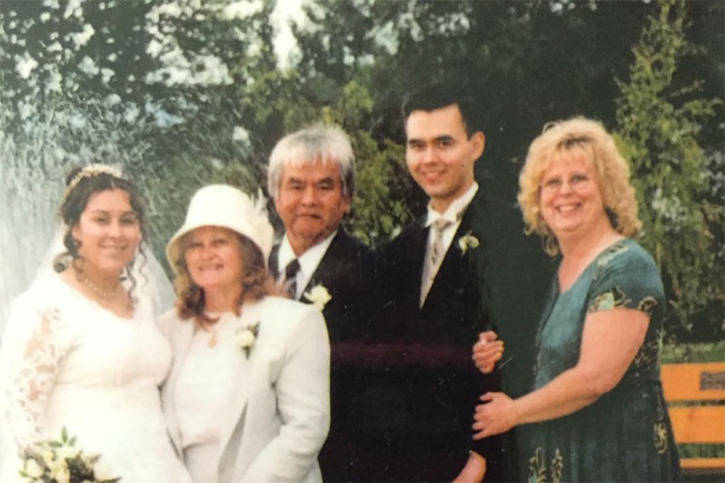A Coroner’s jury has returned verdicts of homicide in the 2016 shooting deaths of Shirley Beatrice Williams and her son Jovan Williams by police in Granisle and made six recommendations to the RCMP E Divison (B.C.) and Northern Health (NH) Authority.
Primary among the recommendations, which the jury made with respect to both Shirley’s and Jovan’s deaths was that the RCMP and NH “lead the development, training and implementation of community crisis intervention teams within isolated communities that bring together members of various agencies, for example, EMS, fire, council, band office, community health, RCMP, school officials, to assist in providing a cohesive response in critical incidents.”
During the week, the jury heard evidence that both a community health nurse and Shirley William’s physician had concerns about Shirley’s mental health, but the concerns were not followed up on.
“The jury heard testimony that there was a lack of cohesive social safety and health services support for the deceased,” the jury’s foreperson read into the record.”Testimony from several witnesses indicated there was a general mistrust of the police by some community members and the deceased, which further exacerbated the incident.”
Shirley’s own journal indicated she was very concerned about police-involved shootings such as the death of 23-year-old Ian Bush in the Houston RCMP detachment in 2005.
READ MORE: No charges in police shooting deaths of Granisle mother and son
Her ex-husband, Harvey Williams, also testified that Shirley was convinced she would be killed by police.
The jury also took issue with the RCMP’s handling of the situation recommending E Division: “review policy to encourage the deployment of members in pairs when possible, especially and specifically for high risk incidents in isolated communities.”
The foreperson said the evidence showed that the incident commander in this case could have assigned two officers to each observation point (the front and rear of the Williams home), but did not.
Two other recommendations pertained specifically to the RCMP.
The first was to reopen the RCMP detachment in Granisle, which was closed in 2012.
“A permanent posting would help build trust and communication in the community and help provide timely assistance to those in need,” the jury said.
“In this case, the jury heard evidence that there was a pattern of escalation and violence between two community members that may have been mitigated earlier had an officer had been a community member.
The second was to “review the critical incident communication protocols for rural and remote communities specifically to consider the option of using family or victim support services personnel during a crisis rather than RCMP members.”
There was also one other recommendation specific to Northern Health which read: “To ensure appropriate followup by community health clinicians in rural and remote communities when assessing and treating clients with mental health issues.”
The foreperson noted that Shirley had exhibited mental health issues that went undiagnosed and untreated for more than three years.
A finding of homicide in a coroner’s inquest is not the same as a criminal verdict as it does not find fault, but merely indicates a person died as the result of the actions of another person.
A prior investigation by the Independent Investigations Office (IIO) of B.C. cleared the RCMP officer who took the fatal shots.
RCMP officers, including an emergency response team, were called to the Williams residence following an altercation between the mother and son and local residents in which Jovan Williams produced a handgun.
The 2018 report by the IIO concluded the officer was forced to fire first when Jovan ran out the back door of the residence wearing an army helmet and tossed a Molotov cocktail and pointed a rifle toward the officer, and then again when Shirley came out with a shotgun wearing a bullet-proof vest.
“The balance of the evidence supports the conclusion [the officer] fired his rifle to protect himself from potential lethal force from guns being pointed at him,” reads a portion of the IIO report.
The inquest took place in Smithers at the Prestige Hudson Bay Lodge between Nov. 1 and Nov. 5, carrying over into Saturday (Nov. 6) because the jury was unable to conclude its deliberations Friday.
– Files from Rod Link
editor@interior-news.com
Like us on Facebook and follow us on Twitter

